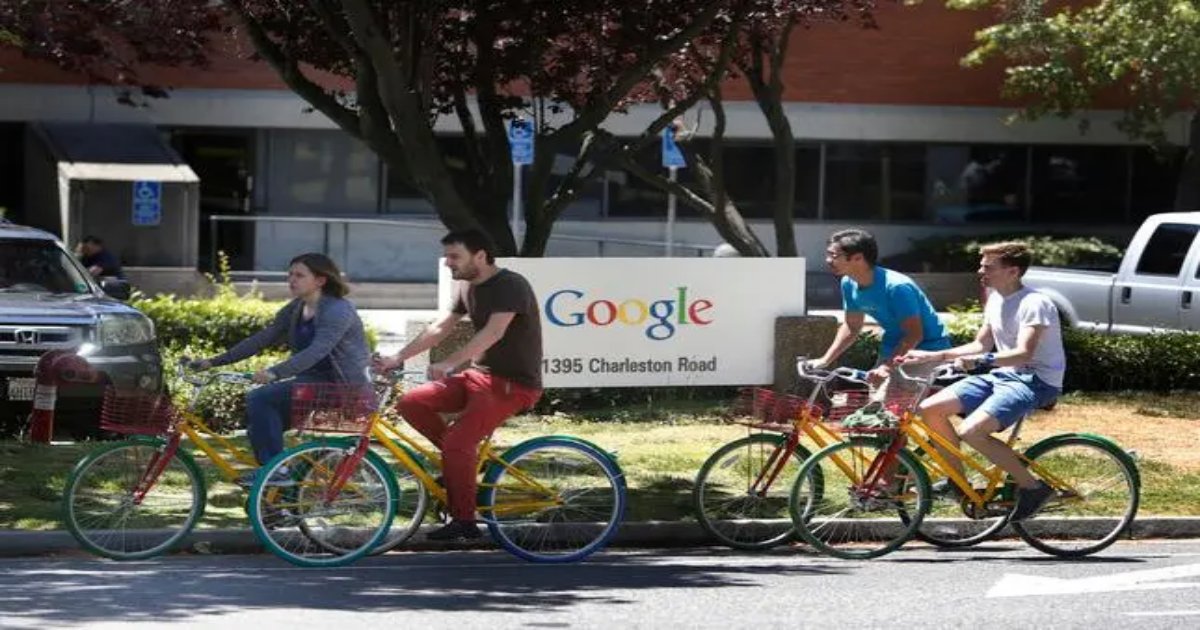Silicon Valley technology giants’ stock values fell off a cliff amid a global selloff after President Donald Trump on Wednesday afternoon announced sweeping tariffs expected to boost U.S. prices and ignite trade wars with countries around the world.
The tariff announcement kicked off a breathtaking plunge in the U.S. stock market, and by close of trading Thursday afternoon the prices of Apple and Meta stock had plummeted 9%, and Santa Clara computer chip titan Nvidia was down nearly 8%. Google parent Alphabet and cybersecurity giant Palo Alto Networks slid almost 5%.
Trump announced a minimum tariff of 10% on imports starting April 5, with the tax rate running much higher on products from certain countries such as China, with 34%, Taiwan, with 32%, Vietnam, with 46% and the European Union, with 20%, starting April 9.
“President Trump refuses to let the United States be taken advantage of and believes that tariffs are necessary to ensure fair trade, protect American workers, and reduce the trade deficit — this is an emergency,” the White House said in a fact sheet Wednesday.
For Apple, Meta and Nvidia, the hit was substantially worse than across the major stock indexes, where the Dow Jones tumbled 4%, the S&P 500 sank close to 5% — for its worst day since the pandemic crashed the economy in 2020 — and the tech-heavy Nasdaq dove 6%.
“Trump’s tariffs and instability are wreaking havoc with companies’ stock prices,” said Adam Kovacevich, CEO of tech industry lobby group Chamber of Progress. “It’s causing investors to be nervous, it’s causing businesses to be uncertain about expansion plans, capital, supply chains.”
For Silicon Valley tech giants, the tariffs would significantly disrupt manufacturing and sales of hardware, software and services.
“That’s going to affect their profitability and may force increases in prices, and that may cause lower sales,” said Stanford Law professor Alan Sykes, who studies international trade. “Everybody sees high tariffs as a potential threat to their bottom line.”
Adding to investor worries over Silicon Valley firms is the threat of targeted punitive responses by tariff-hit countries seeking leverage with the Trump administration, Sykes said.
“The big American tech companies are the most profitable global companies we have, so they are the natural targets of retaliation by foreign governments,” Sykes said. Other nations such as China or members of the EU could slam Silicon Valley giants with taxes or hit them with anti-monopoly legal actions to put pressure on the U.S., Sykes said.
“All of these policies that affect the wellbeing of these companies are potentially in play if we have a full-scale trade war,” Sykes said. “If I were another country, and I wanted to exert pressure on the U.S. to change its ways, I’d go after the most influential U.S. companies, and the Silicon Valley companies are among the most influential.”
For this region’s tech giants, the tariffs deliver a smackdown that contrasts with the presence of their CEOs on Trump’s inauguration stage.
“I suspect some of the Silicon Valley supporters of Mr. Trump are having second thoughts,” Sykes said.
Silicon Valley tech firms such as Apple and Nvidia, whose businesses are dependent on Chinese manufacturing and markets, “will be the most under pressure,” said Wedbush Securities analyst Dan Ives.
Because tech companies’ products and services are layered into virtually every other industry, they can suffer additional damage beyond their own tariff-induced ills, said UC Berkeley Haas business school economic strategist Olaf Groth.
Many in the U.S. hope the tariffs are a temporary negotiating tactic, but with Trump’s stated goal of leveling U.S. trade imbalances with other countries, it remains unclear what he would demand from other nations, Sykes said.
“The trade deficit is not likely to go away no matter what negotiations occur,” Sykes said. “There’s never been any reason to expect bilateral trade to balance. I have a big trade deficit with the Safeway: They don’t buy anything from me. You buy from the people that have the things you want to buy, and you sell things to the people who want what you have.
“The idea that negotiation is going to get rid of bilateral trade imbalances is just foolishness.”
The White House fact sheet on the tariffs said trade deficits “have led to the hollowing out of our manufacturing base,” leading to “a lack of incentive to increase advanced domestic manufacturing capacity.”
Ives in a Thursday afternoon note to investors called the idea of making Apple iPhones in America “a fantasy tale.” Wedbush analysts believe the “vast majority” of iPhone production comes from China, and domestically made versions would likely cost $3,500, Ives said.
Still, in an earlier note Thursday morning, Ives described the tariffs’ effects on stocks as a “Category 5 hurricane” that — if temporary — made it a good time to snap up certain tech stocks such as Apple, Alphabet, Palantir, Palo Alto Networks, Nvidia, Tesla, Amazon and Microsoft.
“Over the coming 24 hours the world will quickly realize these tariff rates will never stay as they are shown, otherwise it would be a self-inflicted Economic Armageddon that Trump would send the U.S. and world through over the coming year,” Ives said. “We have to assume this is the start of a negotiation and these rates will not hold.”
However, opportunistic investors should not bank on quick returns, since the duration of the tariff tumult poses a big unknown, Groth noted.
“It could be as much as a year, if not longer,” he said. “You should have an appetite to hold for that long.”
The Associated Press contributed to this report.
Originally Published: April 3, 2025 at 5:28 PM PDT
